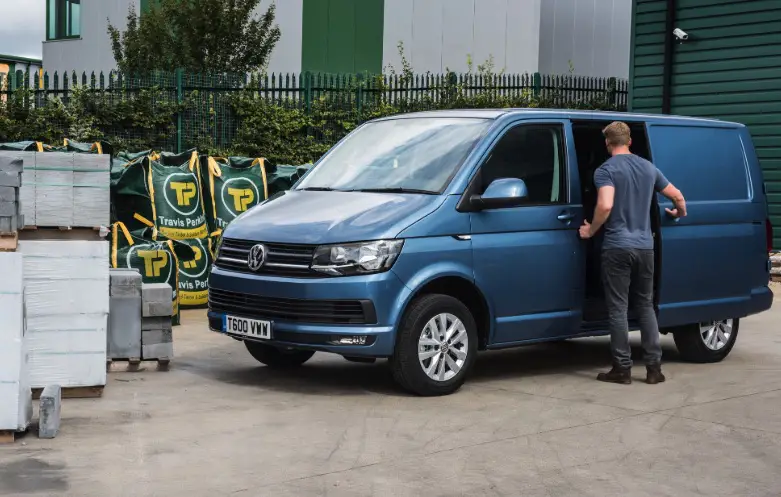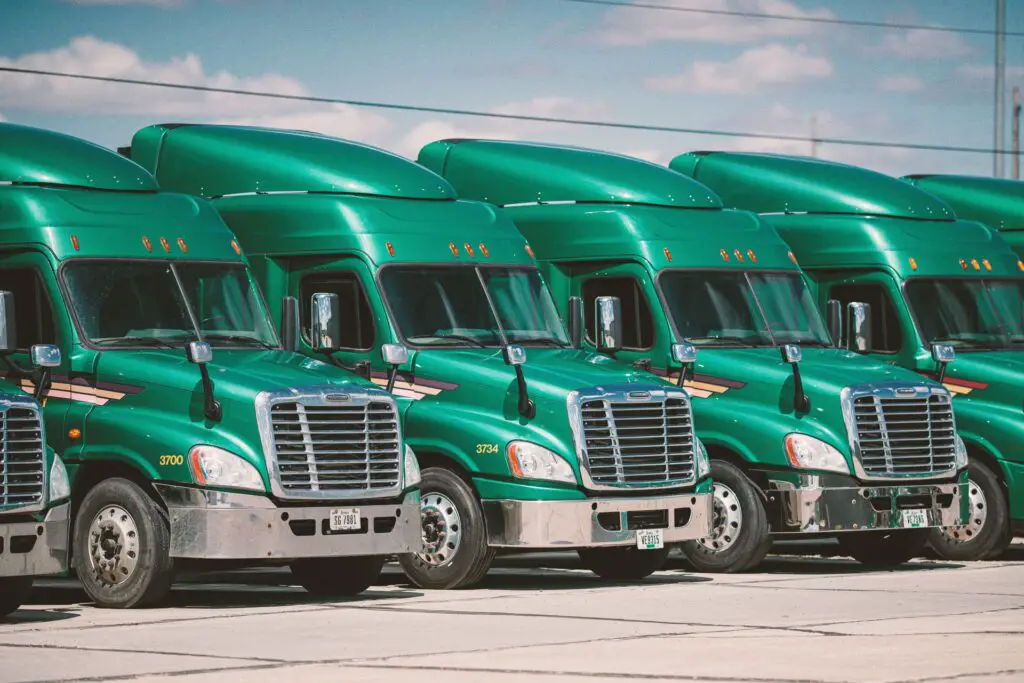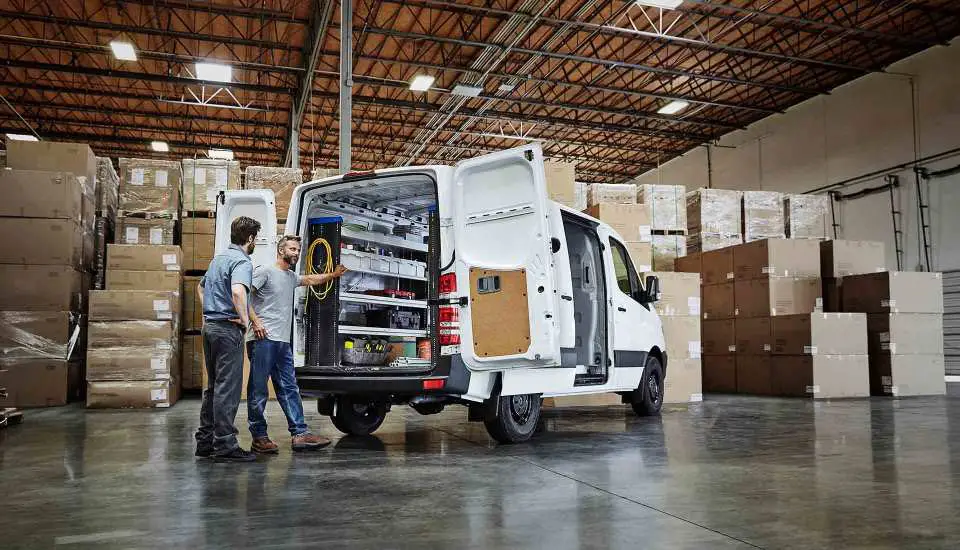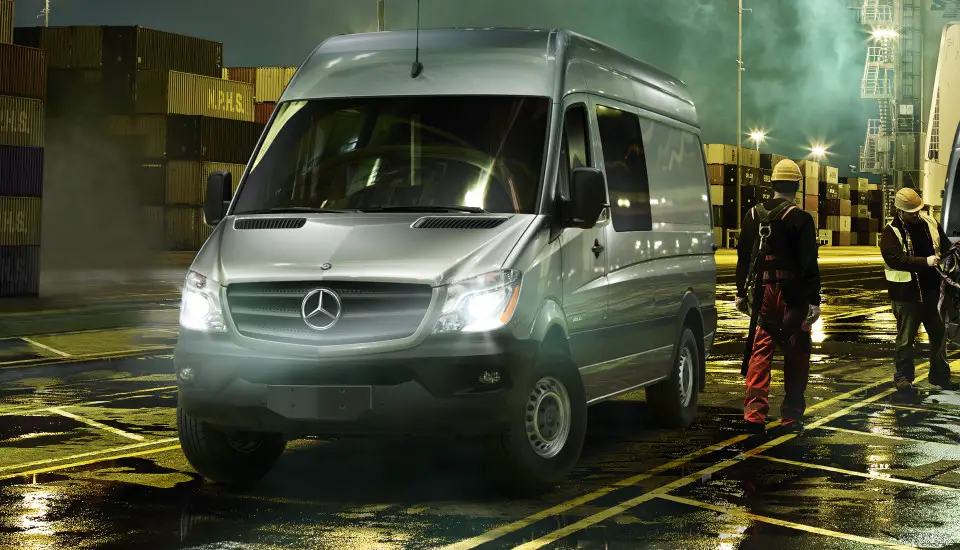If you’ve ever seen the words “Not For Hire” on the back of a vehicle, you might be curious about the not for hire meaning, and whether it’s against the law to hire a truck or a driver
We’ll talk about what this expression implies and how it might affect your business in this piece.
When a vehicle has a “Not For Hire” sticker it is under a “private carrier” and is only being used to convey the company’s goods.
There are several possible explanations for this, but the most frequent one is that the company lacks the necessary authorization to carry goods belonging to third parties.
This doesn’t mean that the driver cannot rent out the vehicle. It merely means that if the company wants to do so, it will need to obtain a separate license.
Not For Hire
Why then do trucks have “Not For Hire” written on the side? You’ve probably seen such trucks drive past you on the highway and wondered why they need to have that printed on the side.
The not for hire meaning essentially boils down to financial advantages. This thus means that it will all boil down to the type of monetary benefit available.
Note that the government heavy-duty laws still apply to these private transport vehicles. One main benefit is that the costs are far lower than for heavy-duty vehicles used by the general public.
Let’s investigate this further and see why “Not For Hire” stickers appear on these private trucks.
Not For Hire Meaning, Definitions #1 – They Are Employed By A Private Business
Private businesses hire vehicles that say “Not For Hire” on the side.
These private businesses probably have big or numerous things that require a larger vehicle.
These larger trucks must be registered as large vehicles in their state, but because they aren’t used as frequently, or at least for as many people, they don’t have to pay as much.
They don’t need to pay as much as someone who does because they are solely for private business!
They utilize the roads less, put less stress on the transportation infrastructure, and are somewhat more private, which are the main causes of this.
Not For Hire Meaning, Definitions #2 – This Truck Is Not Capable Of Hauling For Others
The fundamental issue, and the not for hire meaning, is that even though it is a commercial vehicle, it cannot be hired out to anybody other than the business that registered it.
This means that no one will be able to work odd jobs on the weekends or earn extra money. These cars will only be usable by the one person or private company who owns them.
The Not For Hire sign that you see on the side of a truck often serves as a warning to onlookers as well as a reminder to the driver that using the truck for hire in exchange for payment is against the law.
Not For Hire Meaning, Definitions #3 – More Affordable License Fees
As we previously explained, the main advantage of permitting this badge on the side of the vehicle and forbidding rentals is that they pay less for licensing!
This is an excellent strategy to reduce the cost of licensing a business vehicle because they do put a burden on the system.
This classification places the price in a range between the typical commercial license fees and the fees for mainly private vehicles.
Not For Hire Meaning, Definitions #4 – To Avoid Being Bothered By Others
The unexpected effect of this is that the general people won’t bother these drivers to perform work for them!
Everyone is aware that if you have a pickup, people want to assist you with your move.
Imagine having a truck with a huge trailer that can move practically anything. You undoubtedly would receive a lot of calls from people looking for assistance for a pittance.
Due to the “hold back” nature of this additional sticker indicating they are not for hiring, fewer calls will be placed to them.
Not For Hire Sticker
You’re not the only one who has ever pondered the not for hire meaning and why some truckers mark their vehicles as “Not For Hire.”
Many trucks from private transportation firms also feature a sign clearly showing not-for-hire.
Through this, they can continue to use their vehicles for private transportation without having to pay exorbitant licensing fees.
The sticker also prevents anyone from requesting permission to move objects. Trucks are used by private carriers to transport goods for personal use, not for hire.
For instance, a company might drive a truck that has empty racks since it doesn’t want to pay fees for carrying the load.
Manufacturers of specific car parts may operate vehicles that have not-for-hire tags, yet they are not a requirement to pay for transporting auto components. Instead, they must comply with FMCSA regulations and fingerprint each load in order to move it.
Not For Hire Meaning
For hire denotes a trucking company’s willingness to transport materials or commodities in exchange for payment.
The term “common carrier” is also used to describe this kind of transportation company.
Not for hire, on the other hand, denotes that the trucking company is not willing to transport materials or goods in exchange for payment.
The term “private carrier” is also used to describe this kind of transportation company.
If a truck has the sign “for hire,” it signifies the trucking company is willing to transport materials or goods in exchange for payment.
For Hire Trucking
The services provided by trucking businesses are varied.
While some of them offer specialized services, there are others that offer the supplies and equipment that every expanding company will want.
What is the best way to achieve this, though? What qualities should a business like this have?
Discovering the greatest solutions is worth the time and effort:
How To Choose A Trucking Company
Here is a quick checklist of qualities you should look for in trucking businesses or trucking agents:
1. Protected And Insured
To cover any accidents or damages that may arise while transporting freight, a firm or transporter should carry commercial truck insurance.
This coverage aids in shielding the company’s assets against potential unforeseeable catastrophes. Today’s trucks tend to be large and heavy.
Trucking service companies need to make sure they have the right insurance coverage. Customers, truck drivers, and businesses all benefit from commercial truck insurance.
Make sure a trucking service provider has a license to operate and has the necessary insurance to protect your cargo before engaging them.
Many accidents are unavoidable and unforeseen.
Employing a shipping firm with insurance gives you peace of mind knowing that your inventory is secure and that you will receive payment for any possible loss or damage.
2. Knowledgeable And Trustworthy
Experience is crucial since a seasoned business is more aware of the difficulties with providing trucking services.
It’s crucial to learn how long they’ve been in operation and what additional services they provide.
Strong assurances that a trucking business can manage any delays or accidents that may occur during the process should be easily available.
If a trucking company offers this, they probably know what they’re doing and provide a high-quality service.
3. Professional Team
Truck drivers should be in good standing.
A driver with a spotless driving record is one who has never been in an accident or engaged in any DUI (driving under the influence) violations.
It is the duty of trucking service providers to carry out background checks and testing to make sure that their drivers and employees are dependable and trustworthy.
Drivers who are informed, effective, and punctual will often get contracts from the business.
They need enough drivers to cover any unforeseen delays that might happen at any time, in addition to having drivers who know what they’re doing.
4. Puts Safety First
If the trucking company doesn’t ensure that the drivers are using the right tools and wearing the right safety gear, it could lead to property damage, lost revenue, and other problems.
Professional trucking companies always adhere to the highest standards of safety.
These precautions aid in the protection of workers and clients, particularly in the event of an accident or tragic circumstance.
5. Good Reputation
When looking for trucking services, one of the first factors to take into account is the company’s reputation.
How do other clients rate the transportation services?
Make a note of any unfavorable reviews you come across while looking through their page. One of the most important aspects that affect the caliber and dependability of trucking services is customer happiness.
Not For Hire On Truck
For Hire –what does it mean when it comes to trucks?
It means you have made plans to transfer trucks utilizing carriers that you have hired. Compared to owner-operators, this trucking style is far costlier to insure.
Trucks that are not for hire often have a sign with a not for hire meaning that the truck isn’t for hire. That said, certain individuals might require the usage of such trucks for commercial purposes.
Lower license rates are available for commercial trucks. These trucks strain the licensing system. They are governed by numerous laws and need a CDL license to operate.
Trucks operated for hire may have a different driver, which lowers state taxes. Since hired commercial trucks frequently go over state lines, you’ll likely be staying below the 26,000-pound CDL limit.
Check the laws in your state of residence.
Before a load may be unloaded, a trucker needs to fingerprint the load they are transporting. For highways and bridges, the Federal Motor Carrier Safety Administration, or FMSCA, is in charge.
Drivers need to fingerprint loads as well as unload them. The term “drop and hook” is another name to describe this kind of haulage.
Because they have the benefit of saving plenty of time, drivers prefer to go for drop and hook companies.
Private Carrier Not For Hire
An organization that owns the vehicles for transporting its own goods is referred to as a private carrier.
A private carrier does not seek to transport the goods of other businesses like a common carrier does since it does not do so as its primary business.
In this sense, a private carrier differs from a for-hire carrier and does not primarily operate by transporting the goods of other businesses. Its main concern is its own business.
The most frequent mode of transportation connected with private carriers is semi-trailer trucks, while large companies may also manage their supply chains. This is because they operate their own ships, trains, or planes.
A private carrier’s fleet is classed as per the kinds of goods it deals in and the places it ships to.
Understanding Private Carriers
Many people also wonder what are private carrier firms.
Private carrier firms engage in their own fleets of vehicles for a variety of reasons, but cost and control are two of the more frequent ones.
In comparison to the cost of maintaining a fleet, businesses may perceive the cost of contracting out transportation to be prohibitive.
This is especially true for businesses that ship a lot of goods or for businesses whose products go to uncommon final destinations.
A firm may legitimately be concerned about the dependability of transportation that it does not possess on the control side.
It may be against some business cultures not having a step in the process and communicating with the public or a consumer.
Additionally, not owning the fleet increases the chance that a business won’t have transportation choices accessible when needed because contract carriers are being heavily pressured by rival businesses.
Since 2014, for example, Amazon has been increasing its capacity as a private carrier, reducing its need for common carriers.
Special Considerations
In some circumstances, such as when a significant amount of cargo needs to be carried and all of the company’s fleet vehicles are in use, companies with their own transportation fleets may use contract carriers.
For instance, a retailer may plan to ship many items over the course of the holiday season. They may hire additional drivers as needed to increase their capacity and ensure on-time delivery.
By using this hybrid strategy, the corporation can avoid growing its fleet of private carriers to a point when it reaches a temporary peak.
Even the most control-oriented businesses are often open to using common carriers for surge capacity because sunk expenses in the form of transport capacity reduce profits.
Not For Hire Tow Truck Insurance
What is tow truck insurance not for hire? This is a question that many drivers wonder.
Simply put, a truck is deemed for operating in the United States by a driver who doesn’t proactively seek out new customers.
This simply means that in case you see a large truck having a sign reading “Not For Hire” on its door, the not-for-hire meaning the owner or the company will only transport their own goods and will not work with other businesses like a restaurant might.
This could explain the reason that they have much lower registration rates compared to those that are registered somewhere else (as these drivers don’t need to continue paying taxes), which is why they may not work with other businesses like restaurants might.
Simply put, those who solely move goods for one company and don’t work for multiple businesses, like the common carriers, utilize not-for-hire insurance.
However, you want to look for a tow truck firm that is independent. That is if you want to hire a tow truck.
If you own a tow truck business, work for only one, or operate a standalone tow truck business, this article will help you get all the necessary information.
Considerations When Buying Tow Truck Insurance That Is Not For Hire
Online not-for-hire insurance for tow trucks is offered by many insurance companies. With just one click, you may order your preferred coverage from your ideal insurer. It is really that simple thanks to developments in information technology.
However, you need to be cautious while choosing the coverages since you run the risk of purchasing a policy with insufficient coverages.
Moreover, keep the following things in mind when choosing an insurance policy:
- Type of company
- Amount of trucks
- The qualifications of your staff
- Number of workers
- Coverage deductibles and limits
Your tow insurance policy’s deductible will vary depending on the level of damage as well as the driver’s.
You must pay a deductible before the insurance coverage begins to provide benefits. The insurance provider will pay more of the accident-related expenses if the deductible is larger.
A much lower deductible, however, indicates that you’ll be responsible for a greater portion of the risk involved with the insurance plan.
Additionally, look into the type of insurance that you need for the tow truck.
The type and value of insurance that you require will depend on a couple of factors. These are your gender, age, as well as the make of the truck, according to Finder.
Additionally, the insurance plan will differ based on the kind of truck and its intended use. Tow insurance as well as commercial transportation insurance are crucial.
Define all the terminology upfront.
Coverage For Not For Hire Tow Truck Insurance
Not For Hire Meaning, Insurance #1 – Business Owners
Owner-operators can either own their operations or have a long-term lease with a motor vehicle carrier. Their requirements for tow insurance coverage change as a result.
Owners or operators under their control should choose coverage like:
- Cargo hauling vehicles
- Liability defenses
- Physical harm
- General liability for motor trucks
Owners or operators under long-term leases must also have coverages like:
- To start, workplace accidents
- Second, responsibility not related to trucks
- Trailer Swapping
About 1100 accidents involving trucks and heavy vehicles occur every day, according to Truck Accident Attorney Network.
Therefore, this demonstrates that each tow vehicle is also extremely susceptible to accident risks. This only emphasizes the necessity of towing insurance
Not For Hire Meaning, Insurance #2 – Motor Carrier
The motor carrier policy works for companies that transport goods for a fee. For-hire, private, or even a combination of the two types of motor carriers are all eligible for this coverage.
However, the best option for the trucking industry is the motor carrier for for-hire trucker insurance.
Due to its ability to cover medical costs as well as property damage if there is an accident, liability insurance is a requirement of the policy.
Additionally, you can include extra coverages like:
- To start with, physical harm
- Health insurance
- Uninsured driver
- Finally, cargo insurance for regular motor vehicles
Not For Hire Meaning, Insurance #3 – Private Motor Carrier
Such carriers use their trucks to transport items on behalf of a business or on behalf of their employer. A private motor carrier can also be useful to companies in the manufacturing, excavation, and construction industries.
Moving on, the private motor carrier insurance coverage contains the following coverages:
- Insurance for medical expenses
- Liability protection
- Physical harm
- Collision protection
- Complete protection
- Coverage for theft and fire
FAQs On Not Fire Hire Meaning
What Does Not For Hire Mean
If a large truck is traveling down the road in the US and the door has a sign that reads Not for Hire, this means that the driver is a private carrier and is only hauling the goods of that particular business. In other words, they can’t haul goods for other, third parties.
Do Not For Hire Trucks Have To Stop At Weigh Stations
A truck that is designed as a Not For Hire must stop at weigh stations. The majority of scale facilities clearly state this by posting signs that read, All Daily Rental/Moving Trucks Must Stop At Scales When Open.
Do Box Trucks Need ELD
Consider a box truck. Yes, to answer briefly. You need an ELD and to file IFTA if you are driving outside of the state. If they are moving freight inside a state but more than 150 miles from their base, box trucks and light duty trucks, like an F250 towing a trailer or an auto transport (car trailer), are required to have an ELD.





